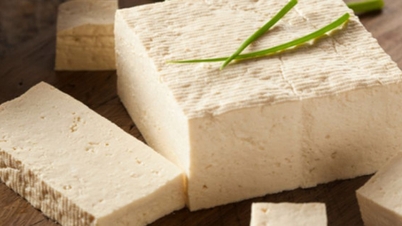Drink enough water
According to research, water accounts for 70% of body weight, so water is also an extremely important factor for human skin. To have a healthy, smooth skin, you need to always ensure that your body is provided with enough water throughout the day.
Not providing enough water for the body can easily affect the appearance, the skin is also more prone to dryness. In addition to providing enough water for the body, people should also increase the intake of foods rich in antioxidants and omega-3 fatty acids. This helps protect cells from environmental damage, helping the body create healthy cells.

Limit the use of water that is too hot
Relaxing in a hot shower or bath at the end of the day can be incredibly relaxing. However, to keep your skin nourished and prevent dryness, you should not use hot water, just warm water.
Because hot water can strip the skin of its natural oils faster than warm water and can even cause damage. After bathing, avoid rubbing vigorously, but gently pat the skin with a soft towel, allowing some moisture to remain on the skin.
Moisturize immediately after washing your face
Whenever you wash your face, hands, or shower, your body loses some of its natural oils. Since these oils help lock in moisture, it’s important to replace them with a moisturizer to combat winter dryness. To avoid this, keep a bottle of moisturizer next to your sink and carry a small moisturizer with you when you’re on the go.
You should note that in winter you should only wash your face once a day to avoid drying out your skin. Using foam and gel cleansers can not only not clean your skin but also dry it out due to the strong cleansing ingredients. Therefore, you should use a non-foaming cleanser or choose a gentler cleansing oil, which contains less active ingredients that can dehydrate the skin.
For the scalp, you should use specialized moisturizers for the scalp or use olive oil or coconut oil for the scalp to help treat dry scalp in winter.
Supplement essential nutrients
Provide your body with enough good foods to improve your skin. Some vitamins such as vitamin A, vitamin B or vitamin C all help your skin become healthier and brighter. In particular, vitamin B also helps restore dry, chapped skin. Therefore, regularly supplement some foods rich in vitamin B from chicken, tuna, cereals, beans, avocados, bananas...
Notes on caring for chapped skin
To maintain moist skin and limit peeling and cracking in the dry season, please note the following issues:
- Cut back on skin care products that contain alpha hydroxy acids or beta hydroxy acids, anti-aging products like glycolic acid, salicylic acid, or retinol, because during the winter months these products can irritate the skin even when combined with moisturizer.
- Do not use products containing alcohol, mineral oil, or volatile ingredients.
- Use a humidifier in the room during the dry season.
- Close the bathroom door to keep the air in the room humid enough.
- Bathe in warm water instead of hot water to avoid dry, flaky skin.
- Avoid scratching. If the itching is due to dry skin, moisturizers can control the itching. You can also use cold compresses or gauze to relieve the itching.
Source: https://kinhtedothi.vn/meo-duong-da-khi-thoi-tiet-hanh-kho.html

































































































Comment (0)